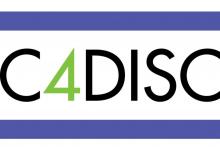New tool to assess equity in scholarly communication models

A new online tool designed to assess the equity of scholarly communication models has been launched at the OASPA 2024 conference. The “How Equitable Is It” tool, developed by a multi-stakeholder Working Group, comprising librarians, library consortia representatives, funders and publishers, and convened by cOAlition S, Jisc and PLOS, aims to provide a framework for evaluating scholarly communication models and arrangements on the axis of equity.
The tool, which was inspired by the “How Open Is It?” framework, is targeted at institutions, library consortia, funders and publishers, i.e. the stakeholders either investing or receiving funds for publishing services. It offers users the opportunity to rate scholarly communication models and arrangements across seven criteria:
- Access to Read
- Publishing immediate Open Access
- Maximising participation
- Re-use rights
- Pricing and fee transparency
- Promoting and encouraging open research practices: data and code
- Promoting and encouraging open research practices: preprints and open peer review
Key objectives
One of the primary ambitions of the Working Group was to develop something practical to help stakeholders assess scholarly communication models and arrangements on the axis of equity and to make this information available in ways which would facilitate easy comparison between different models. Rather than prescribing the outcome, users can rely on their own judgment as to how models or arrangements rate against equitable criteria: no pre-populated database of models, journals or arrangements sits behind the tool.
Robert Kiley, Head of Strategy at cOAlition S and one of the co-Chairs of the Working Group, commented: “While there is broad consensus that a model in which neither the author nor the reader pays a fee is more equitable than a subscription or APC-based approach, determining which other components make one model more equitable than another is challenging. The Equity Tool launched today helps users consider a range of criteria to move away from inequitable article-based models and arrangements to facilitate more equitable participation in knowledge sharing”.
Roheena Anand, Executive Director of Global Publishing Development & Sales at PLOS, and another of the Working Group’s Chairs, added: “We’re delighted to be launching this beta version of the Equity Tool. One of the strengths of the working group is its representation of multiple stakeholder views: funders, librarians and publishers. Many robust conversations between members led to this initial iteration, and we look forward to getting more feedback from the wider community”.
Anna Vernon, Head of Research Licensing at Jisc and also a co-Chair of the Working Group, expressed enthusiasm about the tool's potential impact: “At Jisc we are keen to use this tool to inform our community’s investment decisions in scholarly publishing”.
How the tool works
Based on the above-mentioned criteria, the “How Equitable Is It” tool prompts users to consider to what extent the model (and associated funding flow) they are assessing facilitates (or restricts) equitable participation in knowledge sharing. Users score each criterion on a scale from "least equitable" to "most equitable," receiving an overall equity score upon completion, along with a summary of their responses. A detailed description of the criteria and their definitions is available at: Framework_criteria_definitions.pdf
Feedback sought
The current release of the “How Equitable Is It?” tool is a beta version, open for comments and improvement. Stakeholders in the academic publishing ecosystem are encouraged to test the tool and provide feedback until the 28th October 2024 via the form https://coalitions.typeform.com/Equity-Feedback to help refine the criteria and increase its utility. The Working Group will review all input and publish a revised version in early 2025.








